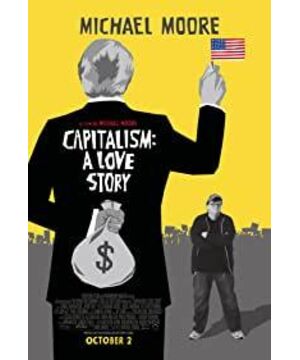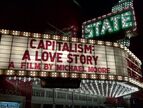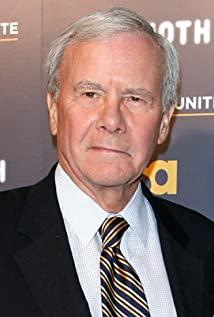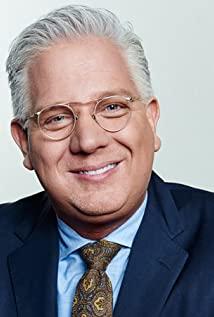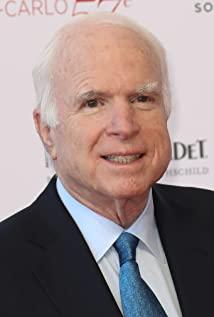As Marx points out, capitalism, as a purely profit-driven system, arranges production and transaction aiming at the “restless never-ending process of profit-making” (Marx 1867, as cited in Edles and Appelrouth 2010). Commodities are produced not for their use-value but for their exchange-value. The basic formula for capital, MC-M', demonstrates that the circulation of money as capital is never-ending and is “an end in itself” (ibid). "Capitalism" emphasizes the “profit motive” through one of its old movie clips with an aside saying “here is the basis of the capitalistic system: the profit motive. He is in business to make money” (Moore 2010). Wallace Shawn, as a guest in the film, expresses another feature of the MC-M' formula by saying that “if you have things, you can easily get more things”, which means that with enough money,presumably from primitive accumulation, one can easily invest, produce and reap profit from exploiting workers. In contrast, the formula for the propertyless, CMC, starts from selling one's labor as commodity and ends at purchasing commodities to fulfil one's basic needs at existence level, These two modes of transaction mark the gap between the two classes – the bourgeoisie and the proletariat – and generate tension between them.These two modes of transaction mark the gap between the two classes – the bourgeoisie and the proletariat – and generate tension between them.These two modes of transaction mark the gap between the two classes – the bourgeoisie and the proletariat – and generate tension between them.
In order to maximize profit, capitalists usually take what Weber calls “instrumental-rational action”, gearing towards “the efficient pursuit of goals through calculating the advantages and disadvantages associated with the possible means for realizing them” (Edles and Appelrouth 2010). For example, Moore observes that during Reagan administration, there was massive downsizing to gain “short-term profits and to destroy the unions” (Moore 2010). General Motor's lobbyist Tom Kay claims that GM eliminated a large number of jobs to stay competitive and it would eliminate more jobs if necessary. Budros (1997) argues that downsizing is a fundamental feature of “new capitalism” and that there are two explanations for the adoption of downsizing programs among Fortune 100 firms from 1979 to 1994.The first draws on the classic organization theory and states that corporations downsize in response to deteriorating economic conditions so they are able to operate efficiently. Budros (1997), on the other hand, concludes from some previous studies on downsizing that “downsizings generally have deleterious organizational (financial) and human consequences”; but because downsizing is viewed by stakeholders as necessary and effective, corporations adopt downsizing programs out of “social rationality” to gain organizing resources and thus to increase profit. Both explanations link the practice of downsizing to making profit, one directly and the other one indirectly.concludes from some previous studies on downsizing that “downsizings generally have deleterious organizational (financial) and human consequences”; but because downsizing is viewed by stakeholders as necessary and effective, corporations adopt downsizing programs out of “social rationality” to gain organizing resources and thus to increase profit. Both explanations link the practice of downsizing to making profit, one directly and the other one indirectly.concludes from some previous studies on downsizing that “downsizings generally have deleterious organizational (financial) and human consequences”; but because downsizing is viewed by stakeholders as necessary and effective, corporations adopt downsizing programs out of “social rationality” to gain organizing resources and thus to increase profit. Both explanations link the practice of downsizing to making profit, one directly and the other one indirectly.one directly and the other one indirectly.one directly and the other one indirectly.
Another profit-seeking rational-instrumental action is the establishment of PA Child Care, a private juvenile detention facility in Pennsylvania as a replacement for the pubic one. The judges and the owners of PA Child Care effectively obtained money by locking teenagers in jail, many of whom were unjustly convicted. Some corporations also make a profit of the death of their employees, by purchasing life insurance for the employees and naming the company as the beneficiary. The film also points out that the pilots' salaries are cut to a minimal amount , so low that many of them have to use food stamps or even donate plasma. Lowering the cost of labor is a means to increase or maintain profit.
All of the actions and strategies described above are profit-oriented, reflecting the nature of capitalism. At the same time, they are very effective in achieving the goal, with rational calculation and manipulation; but they are not necessarily ethical or legal, often contributing to the wealth accumulation of the bourgeoisie by sacrificing the proletariat. The increasingly unequal distribution of wealth exacerbates the class struggle, as Hankers in the film comments, there is likely to be "some kind of rebellion between the people that have nothing and the people that's got it all".Massive downsizing and in general the shift from long-term stable employment to short-term temporary employment in this new economy (Leicht and Fitzgerald 2013) make it increasingly difficult to secure a stable job with decent payment and benefits for average Americans. In Capitalism, the workers from Republic Windows & Doors were laid off and didn't get their owed money. Imprisonment is clearly a traumatic experience for the teenagers and their family. The inadequate wage of pilots leads to the miserable living conditions and unpromising career prospects for pilots, and safety risks for passengers. One of the “condom vultures” openly admits that what they do is to go in to the housing market and “take advantage of other’s misfortunes” (Moore 2010). “Dead peasants” insurance involves deception of employees,generation of mistrust, and the use of the employee's life as a means to profit (Nurnberg and Lackey 2008). Furthermore, as Spurgin (2003) argues, it generates “competing interests that call into question corporations' abilities to fulfill their duties to employees ”, including providing safe working conditions, hiring qualified employees, and providing meaningful work. If some employees are “more valuable dead to a company than alive”, as the Michael Myers, the local attorney who devotes himself in corporate-owned life insurance, suggests in the film, corporations might prefer their employees to die “in accordance to the policy projections”, rather than fulfilling their duties as employers.it generates “competing interests that call into question corporations’ abilities to fulfill their duties to employees”, including providing safe working conditions, hiring qualified employees, and providing meaningful work. If some employees are “more valuable dead to a company than alive”, as the Michael Myers, the local attorney who devotes himself in corporate-owned life insurance, suggests in the film, corporations might prefer their employees to die “in accordance to the policy projections”, rather than fulfilling their duties as employers.it generates “competing interests that call into question corporations’ abilities to fulfill their duties to employees”, including providing safe working conditions, hiring qualified employees, and providing meaningful work. If some employees are “more valuable dead to a company than alive”, as the Michael Myers, the local attorney who devotes himself in corporate-owned life insurance, suggests in the film, corporations might prefer their employees to die “in accordance to the policy projections”, rather than fulfilling their duties as employers.the local attorney who devotes himself in corporate-owned life insurance, suggests in the film, corporations might prefer their employees to die “in accordance to the policy projections”, rather than fulfilling their duties as employers.the local attorney who devotes himself in corporate-owned life insurance, suggests in the film, corporations might prefer their employees to die “in accordance to the policy projections”, rather than fulfilling their duties as employers.
This rational yet unsympathetic, means-to-ends approach is criticized and caricatured by Moore in a fake religious scene, where Jesus becomes a capitalist, refuses to cure "preexisting conditions" of the sick unless payments are made, and advocates the deregulation of the banking system. Here rationality is portrayed at its extremity, leading to disenchantment and indifference, as efficient and manageable as it may be.
Another demonstration of rationality and bureaucracy is when the VIP guy from Countrywide, when asked whether he felt he bribed those VIP people—which is exactly what he did—he said no and explained that “if I didn't do it, somebody else would have been doing it”. For Weber, this lack of autonomy results from the efficient yet dehumanized bureaucratic system, where each individual is only “a small cog in a ceaselessly moving mechanism which prescribes to him an essentially fixed route of march” (Weber 1925 ). Thus this person's feeling of powerlessness and irrelevance is an honest reflection of his situation, where he cannot influence the corporation as a bureaucratic system. For Marx, this would be an example of alienation,where the worker is estranged from the production process – he doesn't participate in decision making – and from his own products – the services he provided to the VIP people do not belong to him, but to his boss.
Alienation manifests in another, less explicit situation in the film. When the laid-off worker from Republic Windows & Doors says “my life revolves around this job. I live according to my obligation to my job, you know? And it's not just me , it's all of the workers here", although he means to highlight the stark contrast between his loyalty to the company and the company's indifference to him, his alienation from the products, from the production process and from himself is obvious. Another worker mentions that the company's bankruptcy is not their fault, since they do not make decisions and all they have done is producing windows and doors. This is their reason for disclaiming responsibility of the company's unsuccessful investment,and it is also evidence for their non-participation in decision-making of the production process and estrangement from their products. More importantly, because his life revolves around this job and his very human essence is defined by this job, “it is only as a worker that he continues to maintain himself as a physical subject” (Marx 1844, as cited in Edles and Appelrouth 2010).
Another problem of capitalism that the film reveals is consumerism. Moore employs a clip of President Jimmy Carter warning the American people of consumerism: “Too many of us now tend to worship self-indulgence and consumption. Human identity is no longer defined by what one does, but by what one owns". Material goods, as Weber observes, have gained “an increasing and finally inexorable power over the lives of men” (Weber 1904) and thus the care for external goods becomes part of “an iron cage” (ibid). Marx uses the term “commodity fetishism” to describe the same phenomenon, and argues that the defining power of commodities stems from the opaque social relations among producers and consumers. With the social relationships, human labor and exploitation all hidden behind the exchange of money and objects,the value of commodities appear to be objective and natural. Consequently, consumers are unlikely to become fully aware of the true nature of commodities: products produced for their exchange value, which is an expression of human labor.
In Marx's view, these problems are inevitable, since capital comes to the world “dripping from head to foot, from every pore, with blood and dirt” (Marx 1867). The very nature and ultimate goal of capitalism, profit seeking, serves as an everlasting source of its problems. For Weber, the trend towards rationalization also seems irresistible. The fact that both traditional domination and charismatic domination tend to end up as rational domination illustrates how powerful and irresistible rational organization is.
REFERENCES
Budros, Art. 1997 " The new capitalism and organizational rationality: The adoption of downsizing programs, 1979–1994." Social Forces 229-250.
Edles, Laura Desfor. and Scott Appelrouth. 2010. Sociological Theory in the Classical Era: Text and Readings. 2nd ed. Thousand Oaks, CA: Pine Forge Press.
Leicht, Kevin T. and Scott T. Fitzgerald. 2013. Middle Class Meltdown in America: Causes, Consequences, and Remedies. Routledge.
Marx, Karl. 1867. Capital. Vol.1. Marxists Internet Archive. Retrieved October 19, 2016 ( https://www.marxists.org/archive/marx/works/ 1867-c1/ch31.htm ).
Moore, Michael. 2010. "Capitalism: A Love Story" [videorecording] Beverly Hills, CA: Anchor Bay Entertainment.
Nurnberg, Hugo and Douglas P. Lackey. 2008. "Ethical Reflections on Company -Owned Life Insurance.” Journal of Business Ethics 845-854. doi: 10.1007/s10551-007-9472-7
Spurgin, Earl W. 2003. “The Problem with 'Dead Peasants' Insurance.” Business & Professional Ethics Journal, 19–36.
Weber, Marx. 1904. The Protestant Ethic and the Spirit of Capitalism, translated by Talcott Parsons. New York : Charles Scriber's Sons.
Weber, Marx. 1925. "Bureaucracy". Economy and Society, edited by Guenther Roth and Claus Wittich. Berkeley: University California Press 956-1005
View more about Capitalism: A Love Story reviews


